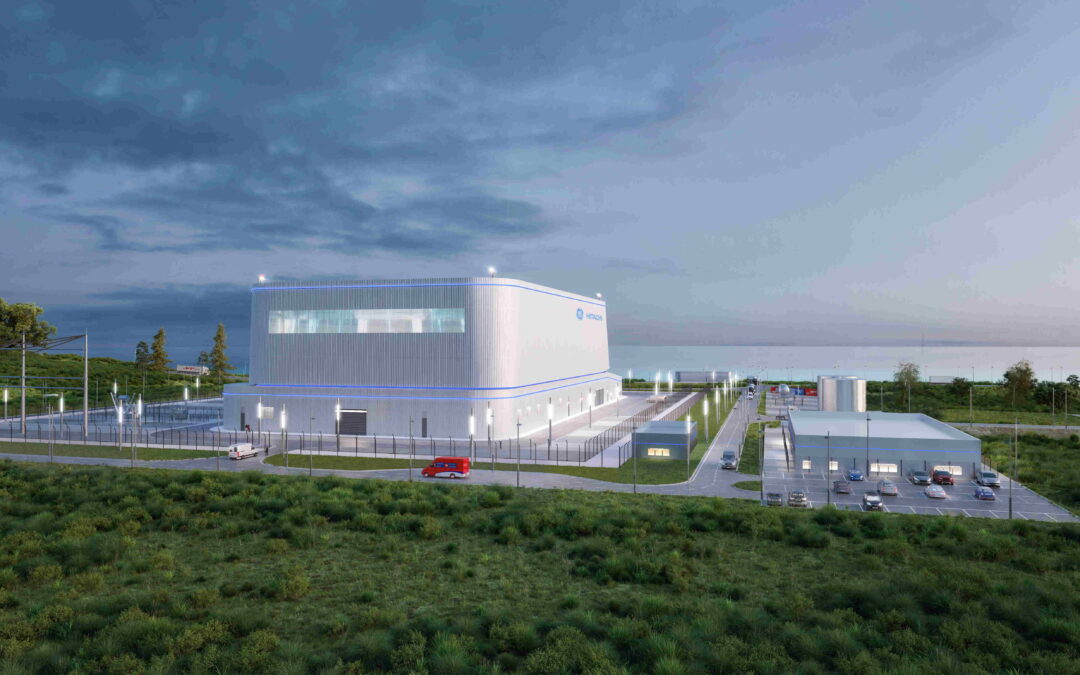Almost 60% of Poles support the construction of nuclear small modular reactors (SMRs) in their country, although that figure falls to 45% when they are asked if they would want one built in their local area.
The findings have emerged from a study by IBRiS, a research agency, commissioned by Polish state energy giant Orlen, which is preparing to build SMRs in around 20 locations across Poland as part of a collaboration with American and Canadian corporations and with financing from US government agencies.
Małe reaktory jądrowe SMR to skuteczna odpowiedź na wyzwania związane z transformacją energetyczną. Aż 58% Polaków popiera ich budowę. Pracujemy nad tym by czysta, zeroemisyjna energia z reaktorów SMR jeszcze w tej dekadzie zasiliła setki tysięcy gospodarstw domowych♻️ pic.twitter.com/eNwpAuGyG8
— ORLEN (@PKN_ORLEN) May 24, 2023
As well as a nationwide poll, the report also surveyed residents from seven potential SMR sites in Warsaw, Ostrołęka, Oświęcim, Dąbrowa Górnicza, Wocławek, Stalowa Wola-Tarnobrzeg and Kraków.
Among all respondents, 58% agreed that it is “necessary in Poland to build several zero-emission small nuclear power plants located in various places”. Only 15% disagreed with the idea.
But when asked if they would support such a nuclear plant in their province (województwo), the average support across the seven potential locations fell to 51%, with opposition rising to 20%. Support for building one in respondents’ local area (miejscowość/gmina) was lower again, at 45%, with 24% opposed.
A group of US, Canadian and Polish corporations have signed an agreement in Washington to invest $400 million in jointly developing small modular nuclear reactors, some of which will be built in Poland by state energy firm Orlen https://t.co/rx8Yc59vBV
— Notes from Poland 🇵🇱 (@notesfrompoland) March 24, 2023
Approval for the construction of small nuclear reactors increases, however, when respondents are presented with the potential benefits. The survey found that 56% would agree to the construction of an SMR in their immediate area if it would lower their energy bills.
“The survey we have carried out provides a solid basis for the dialogue we will want to have with local communities in each of the potential locations for such investments. It is only on this basis that we will decide where further projects will be carried out,” said Orlen’s CEO, Daniel Obajtek.
“We are intensifying work so by 2030 the first small reactor will be built,” he added. By the end of this year, Orlen is expected to present 13 further potential sites for the construction of SMRs.
Two US government agencies have signed letters of intent to provide $4bn in financing for nuclear small modular reactors in Poland.
They will help "protect from Russian influence, meet climate commitments and drive economic development", says @USAmbPoland https://t.co/ASRwvX3mE8
— Notes from Poland 🇵🇱 (@notesfrompoland) April 17, 2023
Last week, the Greens (Zieloni), part of Poland’s largest opposition coalition, held a protest in Kraków against the proposed construction of an SMR there. They argued that the technology, which is still in development, is not sufficiently tested and produces large amounts of nuclear waste.
However, according to the IBRiS survey, 57% of Poles believe that SMRs are safe while 19% disagree. In the case of the construction of SMRs in respondents’ immediate vicinity, 50% still considered the technology to be safe.
The survey was carried out between 28 April to 8 May using the CAPI (Computer Assisted Personal Interviewing) method, with a nationwide sample of 1124 people and a sample of 200 people in each of the seven locations.
We encourage @Zieloni to reconsider their opposition to nuclear.
Nuclear can play a key roll in delivering clean energy for Poland.
Plus polling shows there is strong support. 🧵 https://t.co/bCNtj1SLsh
— RePlanet (@letsreplanet) May 19, 2023
Poland’s government has made nuclear, which directly produces no carbon emissions, a central plank of the transition away from coal, which currently accounts for 70% of the country’s energy mix, by far the highest proportion in Europe. The country currently has no nuclear power stations at all.
A poll in December showed that public support in Poland for developing nuclear power had almost doubled in the space of a year to reach 75% amid the energy crisis triggered by Russia’s war in Ukraine and the Polish government’s moves to develop the country’s first nuclear plants.
Warsaw has chosen the US company as the main partner for the construction of a large nuclear power plant in northern Poland, but it is also supporting other projects such as the Polish-South Korean partnership to build a nuclear plant in place of lignite (brown coal) plant in the central Polish village of Pątnów.
Support for nuclear energy in Poland has risen sharply to 75%, up from 39% last year.
The findings come amid the energy crisis triggered by Russia’s war in Ukraine and as the government moves forward with plans to build Poland's first nuclear power plants https://t.co/OvApCOtiA2
— Notes from Poland 🇵🇱 (@notesfrompoland) December 5, 2022
Main image credit: GE Hitachi Nuclear Energy

Alicja Ptak is deputy editor-in-chief of Notes from Poland and a multimedia journalist. She has written for Clean Energy Wire and The Times, and she hosts her own podcast, The Warsaw Wire, on Poland’s economy and energy sector. She previously worked for Reuters.



















